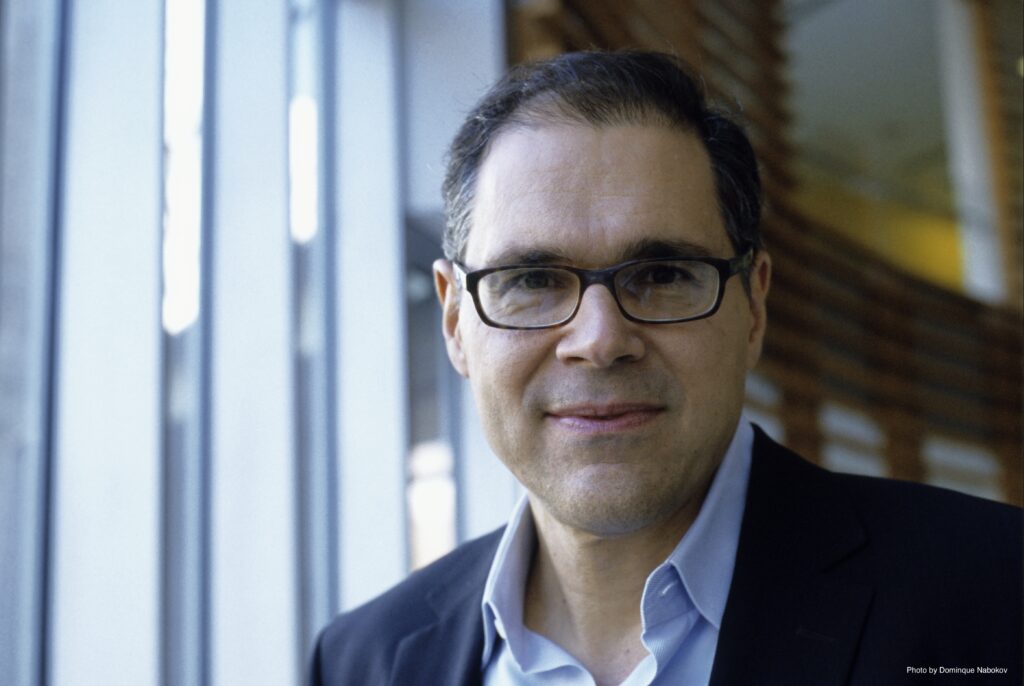
George Makari is a psychiatrist, historian, and author of Of Fear and Strangers: A History of Xenophobia, winner of the 2022 Anisfield-Wolf Book Award; Soul Machine; and The Invention of the Modern Mind. He also serves as Director of the DeWitt Wallace Institute and professor of psychiatry at Weill Cornell Medical College.
Dr. Makari will be delivering the keynote for ASJA’s virtual conference books track, “On Xenophobia: Assessing the Past, Confronting the Present,” on Wednesday, October 12, at 11AM ET.
Q. What led you to write this book?
A: In 2016, I was doing promotional events in London for Soul Machine, which is my second book, and I went to dinner with some dear friends who told me that Brexit was about to be voted upon and not to worry, it would never pass. I told them Donald Trump would never get elected. We both turned out to be quite wrong.
Xenophobia was all over the news, and it became Dictionary.com’s Word of the Year, and everyone was talking about Brexit and Trump in that context. I needed a topic for a new book, and I was thinking about things in my last book about how one mind can, with security and confidence, know another mind, which is a very practical problem for a psychiatrist. It struck me that might be the deeper problem that we find with things like xenophobia, where it’s about misknowing others.
There was a lot in my own family history that was going to resonate with a history of xenophobia, which I learned very quickly was not from antiquity but emerged in the late 19th century. I’m not a classicist, but if this is about the late 19th century Western World, that’s my sweet spot.
Q. What ideas do you want readers to come away with, to help them better understand our current situation?
Xenophobia is a much more powerful concept if we don’t think of it as just anti-immigrant sentiment. It has a broader set of meanings that allow us to link a lot of different forms of discrimination that we normally name by the group that’s being victimized: racism, homophobia, Islamophobia, misogyny, etc. Xenophobia reorients us because it focuses on the victimizer.
I don’t have all the answers, but we do know there’s an element that has to do with stranger anxiety because “I don’t understand this person.” We know what to do about that: exposure, desegregation, integration. Bring these people together. That stranger anxiety stuff will diminish.
We also know you don’t have to have that stranger anxiety to dislike and hate whole groups. You can just read about them, watch TV stations that demonize them, go to movies where they are portrayed as animals, drug dealers, and violent people, and you will have a cognitive stereotype. But you can reeducate people. You can undermine and detoxify stereotypes.
There are also groups that don’t really want to have dialogue or integrate. They don’t care that you think their stereotypes are bad. They are deeply invested in wanting to hate. That’s the toughest group to deal with and find ameliorative strategies. Subcultures that are filled with shame about their identity use this kind of projection and hatred of the other to stabilize their own self-esteem. That’s a complex system where there’s no one simple answer about what to do.
However, there needs to be very clear legal protection for the potential victims of that kind of hatred to prevent genocide. Also, you have to look at the underlying sources of great distress in a community and see if they can be addressed. Dwindling social status, cultural pressures, economic pressures by themselves don’t lead to xenophobia, but they can put a lot of pressure on communities that submit to this kind of hatred.
Q. Are you optimistic that we can navigate our way through this time right now in the U.S?
A. I’m very worried about the United States. I’m worried about the way we are finding that polarization can make reality disappear. What we saw with COVID is people who decided that they were willing to die for the belief that vaccines didn’t work, that masks were a form of oppression, and a lot of people died. So that’s quite chilling. That means that a lot of people were willing to sacrifice their lives, the lives of their families for a commitment to a set of beliefs.
It’s important to note that this is not a bilateral problem. This is a problem in the Republican party, where a major American party has been under the sway of a movement, and it’s not just Trump. It’s a movement that is growing, morphing into something where xenophobia is not an ethical vice. It might be a virtue, and when this stops becoming a shared vice, then we’re in scary terrain where violence is legitimized and rationalized.
Q. After working on this book, what are the key lessons you learned?
A. I decided to take a bunch of chances and risk breaking a bunch of rules. So my two prior books are pretty much straight intellectual history. I don’t appear in them. I follow all the rules of history writing. I don’t make any predictions about the future. I don’t take them to the present. They’re all very much within the epistemology of archival work and citation.
This book, it was pretty clear to me early on, could not be that; it was therefore going to be vulnerable to all of the critiques that come with breaking those rules. Historians might say, “There’s too much of this guy’s own story in it,” or “What makes him think he can talk about the last 20 years when history hasn’t been written about that yet?” The archives will tell a different story, and political scientists will see this as very much out of their bailiwick when there is no empirical evidence.
I had to figure out how I was going to justify breaking the rules, so it’s been gratifying to see that it held together as a piece of writing and that mostly people seem to feel that way.
Hear what Dr. Makari has to say about how we can confront xenophobia at ASJA’s upcoming virtual conference, October 11-16, 2022.

